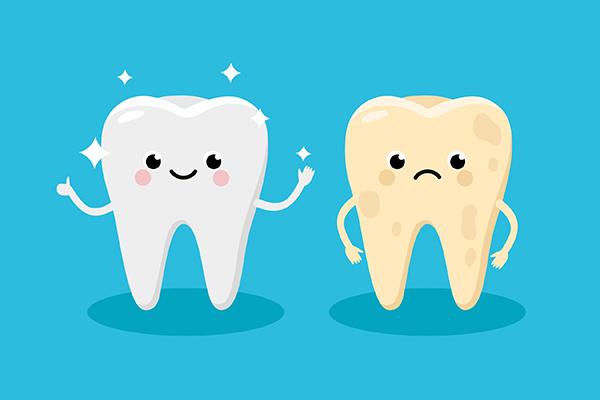How Is Tooth Pain Treated?

Tooth pain occurs when the nerves or sensitive internal layers of a tooth are irritated. This can be the result of tooth decay, injury caused by trauma, infection or tooth loss. At times, you might also experience what appears to be a toothache due to problems that affect the temporomandibular joint.
Most dental issues that lead to tooth pain can be prevented by brushing two times a day with fluoride toothpaste and flossing every day. Preventative procedures like fluoride treatments and the use of dental sealants can also be used to protect a patient's teeth.
Toothache symptoms
Toothaches vary in intensity. Some may only last for about 20 seconds, or until whatever stimulus aggravating the tooth is removed, while others can last for days. Toothaches can radiate to other parts of the body such as the jaw, ear or cheeks. Other symptoms of toothaches include:
- Pain while chewing
- Increased sensitivity to cold and hot foods
- Blood or pus coming out of or around a tooth
- Swelling of the jaw or swelling around a tooth
- Headaches
- Fever
Treating tooth pain
The dentist usually determines treatment for toothaches according to the cause of the pain. There is no standard treatment for toothaches since they can be caused by a variety of things. Toothaches can be managed with pain relievers, but the underlying issue causing the pain needs to be treated to make it go away permanently.
Medical history and examination
The patient's visit typically starts with the dentist going over the individual's medical history. The dentist will also perform a physical examination looking for the source of the pain. Diagnostic tests such as X-rays might also be performed to better evaluate the patient's condition.
Fillings, extractions and root canals
The dentist might perform treatments, including the application of fillings, extracting the tooth or repairing the affected tooth with a root canal. If the tooth is severely damaged, a root canal may be required to clean out the blood vessels and nerves of the tooth. A tooth that has been restored with a root canal will typically be covered with a crown to protect it from further damage.
Infections and antibiotics
Antibiotics might be administered if the patient has an infection, a swollen jaw or a fever. Antibiotics might be prescribed before restorative treatments are performed to fix the patient's condition. An infected tooth is often treated with a root canal. If there is a serious threat of the infection spreading into the patient's jawbone, an extraction might be performed instead. An extracted tooth can be replaced with an oral prosthetic such as an implant
Gum disease
If the patient's toothaches are caused by problems related to gum disease, such as exposed roots, procedures like gum grafts might be used to protect the roots. Other treatments may also be implemented to prevent periodontal disease from progressing.
Finding treatment for tooth pain
Contact an experienced dentist who can diagnose and treat the cause of the toothache. Do not wait until the pain increases and becomes a dental emergency. A competent dentist can pinpoint the reason for the pain, administer treatment and help prevent further complications.
Request an appointment here: https://www.diamondheaddentalcare.com or call Diamond Head Dental Care at (808) 450-2101 for an appointment in our Honolulu office.
Check out what others are saying about our services on Yelp: Read our Yelp reviews.
Recent Posts
Everyone needs professional care to maintain healthy teeth and gums. These days, it is much easier to find a dentist who covers the essentials and offers additional treatments for complete care. By understanding the type of care a dentist can provide and how to find the right office, patients can enjoy better oral health.Many dentists…
Many people need to find a dentist on the weekend. Whether work or school schedules prevent a visit during normal business hours on the weekdays or a dental emergency occurs, there are often occasions where the weekend is the only time available to see the dentist. Keep reading for tips on how to locate a…
Regular dental checkups are vital to keeping your teeth and gums healthy. You should visit your family dentist at least once every six months. This includes both adults and children alike. Routine dental appointments are essential for good oral health and they offer many important benefits.Tartar removal is an important step in dental appointments that…
Emergency dentistry can provide immediate relief from the discomfort that you may be experiencing. While waiting for your turn, you can do a few things to help your situation. Knowing what to do can prepare your teeth and gums for urgent treatment.If a patient wants to know what they can do while waiting to see…


